william henry green
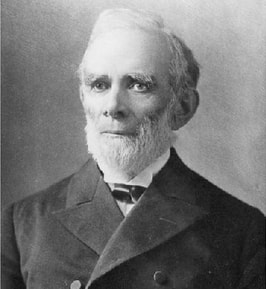
William Henry Green (January 27, 1824 – February 10, 1900), was an American scholar of the Hebrew language. He was born in Groveville, near Bordentown, New Jersey. Green was descended in the sixth generation from Jonathan Dickinson, first president of the College of New Jersey (now Princeton University). His ancestors had been closely connected with the Presbyterian church. He graduated in 1840 from Lafayette College, where he was tutor in mathematics (1840–1842) and adjunct professor (1843–1844). In 1846 he graduated from Princeton Theological Seminary, and was instructor in Hebrew there from 1846 to 1849. He was ordained in 1848 and was pastor of the Central Presbyterian church of Philadelphia from 1849 to 1851. From August 1851 until his death, in Princeton, New Jersey, aged 75, he was professor of Biblical and Oriental Literature in Princeton Theological Seminary. From 1859 the title of his chair was Oriental and Old Testament Literature. Dr. Green was a prolific writer and his subject matter was most often in his area of specialization, though he sometimes wrote on other subjects. His first piece for Biblical Repertory and Princeton Review (BRPR) was a review of Keil’s commentary on Joshua in 1850. Most of his contributions to serials were printed in BRPR, but he also wrote for its successors Presbyterian Quarterly and Princeton Review, Presbyterian Review, and the Presbyterian and Reformed Review. From 1883 to 1892, he wrote the critical notes on the International Sunday School Lessons that appeared in The Sunday School Times published in Philadelphia. As the moderator of the General Assembly that was dealing with the Briggs Case in 1891, he handled the gavel having published in The Evangelist, July 23, 1885, “A Reply to Dr. Briggs on the Revised Version of the Old Testament,” and just before the assembly met, “Dr. Briggs’s Inaugural Address,” in the New York Observer of April 16, 1891.
in 1868 he was elected president of Princeton University but declined to accept. In 1891 he served as the moderator of the General Assembly of the Presbyterian Church in the U.S.A. In his commemorative address on Green’s death, John D. Davis said: "There is every reason to believe that from the day when he, a boy of fifteen years, professed his faith in Christ at the church in Easton, until February 10, 1900, when he departed from the body to be at home with the Lord, a period of sixty years, his life was actuated by those motives which spring from the apprehension of personal salvation through Jesus Christ alone."
Some of his books include Grammar of the Hebrew Language, 1861; The Pentateuch Vindicated from the Aspersions of Bishop Colenso, 1863; An Elementary Hebrew Grammar with Tables, Reading Exercises, and a Vocabulary, 1868, 1871; A Hebrew Chrestomathy, or, Lessons in Reading and Writing Hebrew, 1872; The Argument of the Book of Job Unfolded, 1874; The Hebrew Feasts, 1885; The Higher Criticism of the Pentateuch and The Unity of the Book of Genesis, both in 1895; and the two volumes, General Introduction to the Old Testament, The Canon, 1898, and General Introduction to the Old Testament, The Text, 1899.
in 1868 he was elected president of Princeton University but declined to accept. In 1891 he served as the moderator of the General Assembly of the Presbyterian Church in the U.S.A. In his commemorative address on Green’s death, John D. Davis said: "There is every reason to believe that from the day when he, a boy of fifteen years, professed his faith in Christ at the church in Easton, until February 10, 1900, when he departed from the body to be at home with the Lord, a period of sixty years, his life was actuated by those motives which spring from the apprehension of personal salvation through Jesus Christ alone."
Some of his books include Grammar of the Hebrew Language, 1861; The Pentateuch Vindicated from the Aspersions of Bishop Colenso, 1863; An Elementary Hebrew Grammar with Tables, Reading Exercises, and a Vocabulary, 1868, 1871; A Hebrew Chrestomathy, or, Lessons in Reading and Writing Hebrew, 1872; The Argument of the Book of Job Unfolded, 1874; The Hebrew Feasts, 1885; The Higher Criticism of the Pentateuch and The Unity of the Book of Genesis, both in 1895; and the two volumes, General Introduction to the Old Testament, The Canon, 1898, and General Introduction to the Old Testament, The Text, 1899.
 William Henry Green Files
William Henry Green Files
What is the abundance of the sea here spoken of, and how shall it be converted to the benefit of the Church of God ? The seas, which girdle or indent our continents and en compass our globe, are of as great consequence to the world in fitting it up to be the abode of man, as they are in their geographical or physical relations to the land in regulating its temperature, and its winds, or watering its surface to adapt it to the support of vegetable and animal life. I need not remind my present audience, how in the history of man it has invariably been maritime nations which have been distinguished for wealth , and power, and cultivation ; and how every great movement toward the elevation of the race has begun, not in the centre of continents and extended out ward, but upon the coast, and spread itself inward. It is sufficient here to allude to the names of Tyre, Carthage, Alexandria, Venice, Greece, Rome, Holland, Britain. The very mention of their names will bring up to your minds all that we would say. And we have no idea of going here into an exposition, either historical or argumentative, .of the benefits of foreign commerce. In reply, then, to the question what is meant by the abundance of the sea, we point you to the riches, and the civilization , and the power, which are the fruits of com mercial intercourse ; and we tell you these shall be turned into Christian channels, and converted to Christian ends. We take you to the thronging wharves, and show you state ly vessels, freighted with their valuable cargoes, storehouses filled, and the very streets crowded with the products of every clime. We take you to the noble mansions of our merchant princes, built from the treasures of the sea. We request you to inspect the elegancies and conveniences, and even what are considered necessaries by all our citizens, and mark for how many they are indebted to them that go down to the sea, and do business in great waters. We point you to the large and wealthy cities which have sprung up all along the sea-board, and which owe all their prosperity and importance, and their existence even, to the traffic which pours into them as commercial centres. We wish you to see how the products of the sea are scattered over the continent, and how the most remote inland points are opening up their communication with the coast, that they may, if possible, divert upon themselves some of these enriching streams. We ask you to look at the enterprise that is fostered, the civilization that is acquired by intercourse with foreign parts, the gathering in of all that is seen useful or valuable abroad in all parts of the world, and making the centre of trade the focus of human progress and advancement in every possible respect. Then consider the strength arising to a nation from these wooden walls, and the influence acquired by its vessels visiting every shore. We ask you to carry these out in all their endless ramifications and influences upon nations and upon man kind, and to estimate their value, and then set down, col lected in one vast aggregate, what the nations of the earth now are above what they would have been but for the ad vantages, that have been reaped from commercial inter course. Tell me what this has given them in individual wealth, and cultivation, and resources, in national ele vation, and prosperity; this is the abundance gathered from the seas ; all this our text declares shall be con verted unto Zion, to be used for Zion's God. This wealth, this power, this culture, shall all be hers, expended for her sake, devoted to her interests, laid out in her service. It shall be acknowledged that to God belongs the increase of the seas, as well as the increase of the land. They, into whose hands it shall be given, shall use it as every worldly advantage should be used, for the glory of God, the extension of his earthly kingdom, and the best inte rests of our race. -William Henry Green; The Abundance of the Sea; 1850
 William Henry Green Files
William Henry Green Files
Under the pressure of intense affliction men are in danger of falling into one of two extremes, either of which is inconsistent with fidelity to the Lord's service. The first is that of repining and murmuring at the divine allotment. The other is that of bearing it in a spirit of hardened indifference. The wise man warns us against both. "My son do not despise the chastening of the Lord, nor detest His correction: For whom the Lord loves He corrects..."(Prov 3:11-12). Job avoided both of these dangers in that subdued but noble demeanor which has been in all ages since the model of submissive resignation. The stricken patriarch, bowed with grief, adopts the token of the most profound humiliation and sorrow: he rent his mantle, and shaved his head, and fell upon the ground. Not to sit in the sullen silence and brood despondently over the terrible losses which he had sustained, not to complain of the providence of God which had dealt so hardly with him, no, he prostrates himself in reverential worship; he bows with meek submission to Him who had smitten him, and his only language is that of grateful adoration to the Source of all blessings, who in removing all had but taken away what He Himself had given. Job fell down upon the ground and worshipped and said, "Naked I came from my mother's womb, And naked shall I return there. The Lord gave, and the Lord has taken away; Blessed be the name of the Lord" (Job 1:21).
--William Henry Green; The Book of Job Unfolded; 1874
--William Henry Green; The Book of Job Unfolded; 1874
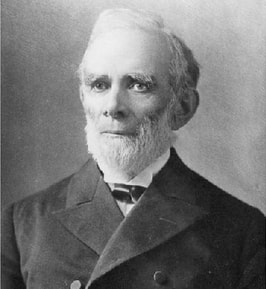 William Henry Green Files
William Henry Green Files
"The Lord gave, and the Lord has taken away; Blessed be the name of the Lord." (Job 1:21). The bitterness of his loss is made the measure of the preciousness of the blessings God had given. The severity of his trial consists in parting with what God had bestowed. Every pang that now rends his heart is a fresh proof of how gracious God has been. The magnitude of the loss determines the value of the gift, and the depth of his anguish enhances his grateful sense of the goodness of the Giver. The more deeply he mourns the treasures which have been taken away from him, the higher is his appreciation of the gracious kindness of Him who bestowed them. Thus the more profoundly he grieves, the more fervently he blesses the name of the Lord. --William Henry Green; The Book of Job Unfolded; 1874
 William Henry Green Files
William Henry Green Files
The constancy of Job and the power of faith could never have been made to appear so conspicuous, if it had not been for the severity of the test to which he was subjected. This lay not only in the accumulated sorrows by which he was so suddenly overwhelmed, but chiefly in the suggestions of the tempter, who mercilessly goading him on to give up his confidence in God, and to renounce His service. It was these sore temptations, which tortured him almost to despair, and wrung from him those bitter wailings with which the book abounds. And yet in spite of all, out of the midst of the depths we hear Job utter in the very face of the tempter his unabated trust in God, "I know that my Redeemer lives" (Job 19:25).
--William Henry Green; The Book of Job Unfolded; 1874
--William Henry Green; The Book of Job Unfolded; 1874
 William Henry Green Files
William Henry Green Files
Satan cannot by any means harm the feeblest of God's saints, who stand up against him in the name of the Lord. If he have on the armor with which divine grace has furnished him and use aright the weapons with which he is supplied, and in humble dependence on his Lord abides in his post, he is invincible, and the boastful foe, who came upon him ready to swallow him up, shall be driven back in shame and confusion. "Resist the devil, and he will flee from you" (James 4:7).
--William Henry Green; The Book of Job Unfolded; 1874
--William Henry Green; The Book of Job Unfolded; 1874
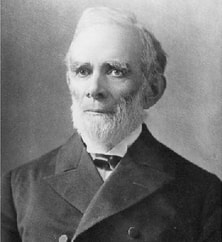 William Henry Green Files
William Henry Green Files
It was with Job, God himself testified that there was none like him in the earth, a perfect and an upright man. that feared God, and shunned evil. And yet there was a leaven of corruption in his imperfectly sanctified nature, of which he was not aware, until by the terrible thrusts of Satan it was exposed. Underneath his really sincere piety there was a blemish of self-righteousness, which made him bitter under the reproaches of his friends, and which, in the awful darkness of his trials, led him to the point of justifying himself rather than God. Brought at last to himself and dismayed at the thought of what he had allowed himself to utter, he says, "I abhor myself, and repent in the dust and ashes." (Job 42:6). The design of God in this severe but salutary discipline was accomplished. Job had been led to know himself better than he did before, and he was humbled by this knowledge. The evil which before lurked within him unsuspected was detected and renounced.
--William Henry Green; The Book of Job Unfolded; 1874
--William Henry Green; The Book of Job Unfolded; 1874
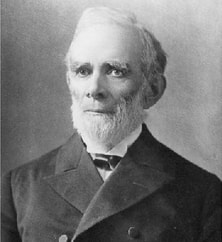 William Henry Green Files
William Henry Green Files
Job had an understandably difficult time grasping that his trials were not tokens of God's displeasure. Only New Testament believers can easily see that trials are not evidences that He has withdrawn His love or has shut up His tender mercies. On the contrary, whom the Lord loveth He chastens. There is a paternal discipline in affliction. It has a gracious design and will have a salutary result. The rod is in a loving Fathers hand: its strokes are not capriciously not unkindly given. They are administered solely for our good, for as the Apostle Paul explained, "all things work together for the good to those who love God...: (Rom 8:28).
--William Henry Green; The Book of Job Unfolded; 1874
--William Henry Green; The Book of Job Unfolded; 1874
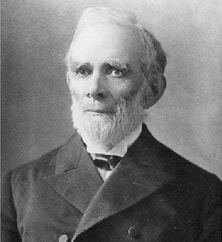 William Henry Green Files
William Henry Green Files
It is undoubtedly true that where there is no sin there will be no suffering among the subjects of God's moral government. All suffering has sin as its invariable and necessary antecedent. It is also true that the consciousness of sin must forever close the mouth of every sufferer from any well-grounded complaint against the righteousness of God. The holiest and the best are sinners nevertheless. And whatever may be the sufferings they endure in the providence of God, it cannot be said that they are unjustly treated. For, as Zophar states in more developed form to Job: "..Gods exacts from you Less than your iniquity deserves" (Job 11:6). No man's sufferings in this world are equal to what he deserves. --William Henry Green; The Book of Job Unfolded; 1874
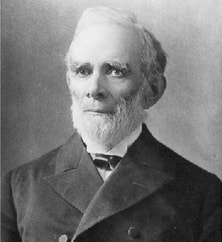 William Henry Green Files
William Henry Green Files
Job's triumph is, in the most absolute and unqualified sense, the triumph of faith over human reason or logic. He seems to outward view to have no ground left to stand upon. Satan has apparently forced him to conclusions respecting the providence of God, which positively exclude worship. It would seem as though everything conspired to show that God was persecuting him, and treat him as an enemy. Yet from an angry God he can turn nowhere but back to God Himself, in whom he does and must confide, in spite of his apparent hostility. God is still his only refuge, even from the fierceness of His own displeasure. "Though He slay me, yet will I trust Him (Job 13:15). --William Henry Green; The Book of Job Unfolded; 1874
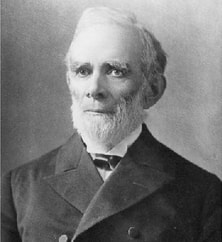 William Henry Green Files
William Henry Green Files
In his first reply to Eliphaz, Job is in the same state of unrelieved despair as in his opening complaint. The sympathy of his friends had been denied him, and he bitterly scolds them for withholding that pity which was so needful to him in his distressed situation, and would have cost them so little. Eliphaz had reminded him of the infinite greatness of God, and of the feebleness and frailty of sinful man, and urged these as reasons why he should be submissive under his sufferings. To Job's mind these were but an aggravation of his misery and a fresh justification of his complaint. He had but one brief life to live, and this was filled up with weariness and woe, "Therefore," he says, "I will not retrain my mouth; I will speak in the anguish of my spirit; I will complain in the bitterness of my soul." (Job 7:11). And he converts these into please with the Almighty that he would mitigate the severity of his treatment. He was too insignificant and frail, sinner though he was, to deserve or to require such terrible testing from the infinite God.
--William Henry Green; The Book of Job Unfolded; 1874
--William Henry Green; The Book of Job Unfolded; 1874
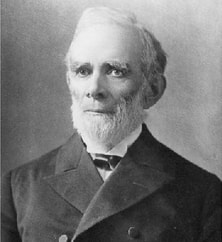 William Henry Green Files
William Henry Green Files
"For I know that my Redeemer lives, And He shall stand at last on the earth; And after my skin is destroyed, this I know, That in my flesh I shall see God, Whom I shall see for myself, And my eyes shall behold, and not another. How my heart yearns within me! Job 19:25-17.
Job's triumphant assertion of his unshaken confidence in God, which he reaches near the close of the nineteenth chapter, is deservedly ranked as the most important comment in all his speeches. In some respects it is one of the most significant passages in the entire Old Testament, not so much in the positive amountof information which it contains as in the spirit of an unquenchable faith which it discloses. It nearly exaslts the patriarch of Uz to the level of the patriarch from Ur, the acknowledged father of the faithful, and marks Job as another conspicouous example of the pattern of faith found in Abraham--the one as distihguished and heroic in his steadfastness in suffering as the other in his unswerving obedience.
--William Henry Green; The Book of Job Unfolded; 1874
Job's triumphant assertion of his unshaken confidence in God, which he reaches near the close of the nineteenth chapter, is deservedly ranked as the most important comment in all his speeches. In some respects it is one of the most significant passages in the entire Old Testament, not so much in the positive amountof information which it contains as in the spirit of an unquenchable faith which it discloses. It nearly exaslts the patriarch of Uz to the level of the patriarch from Ur, the acknowledged father of the faithful, and marks Job as another conspicouous example of the pattern of faith found in Abraham--the one as distihguished and heroic in his steadfastness in suffering as the other in his unswerving obedience.
--William Henry Green; The Book of Job Unfolded; 1874
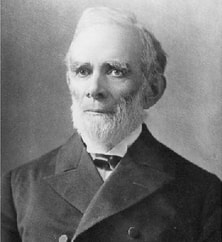 William Henry Green Files
William Henry Green Files
Man can never aspire to a comprehension of the absolute wisdom, but the Most High has mercifully revealed to man all that is necessary for his practical guidance. He may not presume to know how God governs the world, or what rules He prescribes for His procedure, but he has been sufficiently taught how to direct his own conduct and how to govern his own life. He cannot solve the mysteries of Providence, but he may solve what is of more immediate importance to Him: all questions of personal duty. He cannot tell the end, which is often blocked by everything which God permits or brings to pass. Nevertheless, he does not need to be in doubt as to how he may accomplish the true mission of his own life, how he can secure his own highest welfare. "The fear of the Lord that is wisdom. And to depart from evil is understanding." (Job 28:28).
--William Henry Green; The Book of Job Unfolded; 1874
--William Henry Green; The Book of Job Unfolded; 1874
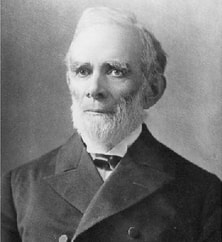 William Henry Green Files
William Henry Green Files
The words of Job are here ended. He stand face to face with a mystery that is thus far wholly unexplained. he has no theory, and can imagine none upon which his present sorrows can be accounted for. His friends undertook to silence his complaint, but he instead silenced them. He holds fast to his faith in God but he does so notwithstanding the fact that he cannot rid himself of troubling questions that have arisen in his soul. Nor can he align his faith with the facts which he can neither escape nor explain away, those which seem to be directly contrary with the divine attributes. He gloomily says, "Therefore I am terrified at His presence; When I consider this, I am afraid of Him. For God made my heart weak, And the Almighty terrifies me." (Job 23:15, 16). There is an unrest in his soul which he cannot compose. Satan has not been able to destroy him, but he has plunged him into darkness and distress, out of which he cannot find his way. His trust in God continues, however. He still confides in his Redeemer, who after his skin is destroyed and his flesh has mouldered back to the dust, will reveal Himself to his disembodied spirit. But will God allow his servant to go on in darkness to the end, bearing his heavy burden, and hoping against hope? Must Job die under the cloud?
--William Henry Green; The Book of Job Unfolded; 1874
--William Henry Green; The Book of Job Unfolded; 1874

